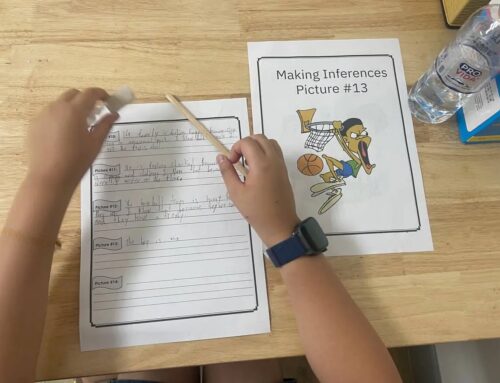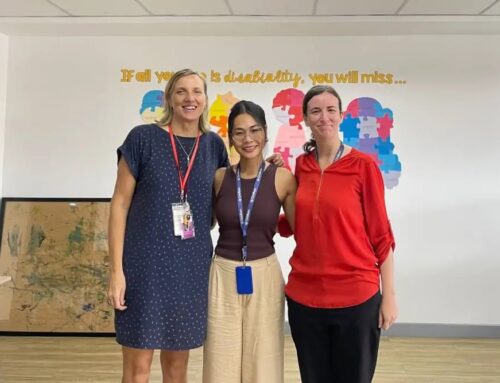[ad_1]
Speech therapy in Cambodia has grown significantly in recent years, yet the field is still developing compared to neighboring countries. With increasing awareness of developmental disorders and communication challenges, more parents and schools in Phnom Penh are seeking professional speech therapy support. However, access, training, and resources remain limited. Understanding both the progress and the challenges is essential to building a sustainable framework for speech therapy in Cambodia.
Growing Awareness and Accessibility
In the past decade, Cambodia has witnessed steady progress in the field of speech therapy. Awareness among parents, educators, and medical professionals is rising, largely due to advocacy from organizations like OrbRom Center and international collaborations.
Previously, communication delays or speech disorders were often misunderstood, sometimes linked to behavioral or academic issues rather than developmental challenges. Today, families are becoming more informed through parent workshops, early childhood screenings, and professional assessments such as those offered by OrbRom’s speech therapy services.
In major cities like Phnom Penh, there is now a growing network of trained speech-language pathologists (SLPs) who work with children across schools and therapy centers. These professionals play a vital role in helping children with speech delays, articulation issues, and language disorders, allowing them to communicate more effectively both at home and in school.
For younger children, early intervention programs such as OrbRom’s preschool program provide integrated learning environments where speech therapy is combined with play-based education. This approach has been shown to improve communication outcomes and school readiness.
Training and Professional Development
A key factor in Cambodia’s progress is the increasing availability of local training opportunities. Previously, speech-language therapy was a discipline that required study abroad. Today, several initiatives and collaborations are paving the way for local capacity-building.
Organizations are now offering workshops and in-service training for teachers and therapists to help identify and support children with communication difficulties. Schools are also incorporating speech therapy consultations and professional partnerships into their inclusive education programs.
However, the number of certified Cambodian speech therapists remains small. Most practitioners working in Phnom Penh are either expatriates or professionals trained overseas. To ensure sustainable progress, Cambodia must continue to invest in formal education pathways for speech-language pathology and provide mentorship for emerging local therapists.
OrbRom Center, for example, supports professional growth through continuous learning and evidence-based practice, ensuring that therapists remain updated on global best practices while adapting techniques to the Cambodian context.
Challenges in Reaching Every Child
Despite remarkable improvements, significant challenges persist in ensuring equitable access to speech therapy services. Many children in rural areas remain undiagnosed or untreated due to financial constraints, lack of trained professionals, and limited awareness.
Even in urban areas, therapy sessions can be seen as costly, leading families to delay intervention. This delay can impact children’s ability to develop essential communication and literacy skills, affecting their long-term educational outcomes.
Moreover, stigma still exists around developmental and communication disorders. Some parents may be hesitant to seek therapy, fearing judgment or misunderstanding from their community. Educating the public about the importance of early intervention and the benefits of speech therapy is crucial to overcoming these barriers.
To bridge these gaps, OrbRom Center promotes accessible and affordable speech therapy options that cater to the diverse needs of Cambodian families. The center’s special needs intensive intervention program provides tailored one-on-one sessions that target specific goals for each child, helping them make meaningful progress in communication, social, and academic skills.
A Path Toward Inclusive Education
The future of speech therapy in Cambodia lies in collaboration. Schools, healthcare providers, and therapy centers must continue working together to create inclusive learning environments that support every child’s communication potential.
By incorporating speech and language goals into classroom activities, teachers can reinforce therapy outcomes in daily routines. Training educators to recognize early signs of communication difficulties can also lead to earlier referrals and better results for children.
Centers like OrbRom are leading this transformation by offering comprehensive assessments and ongoing therapy sessions that focus on each child’s strengths and learning style. Through its partnerships with schools and community organizations, OrbRom helps create sustainable support systems that extend beyond therapy rooms—building bridges between home, school, and clinical care.
Conclusion
The state of speech therapy in Cambodia reflects both inspiring progress and ongoing challenges. While awareness and access have improved, the demand for qualified professionals and sustainable training programs remains high. Continued collaboration between education centers, families, and health organizations is essential for reaching more children and promoting communication equity across the country.
Parents seeking early intervention can find expert guidance and compassionate care at OrbRom Center, where experienced therapists support children in developing their speech, language, and confidence. As Cambodia continues to invest in inclusive education and professional development, the future for speech therapy looks promising.
[ad_2]
Source link






